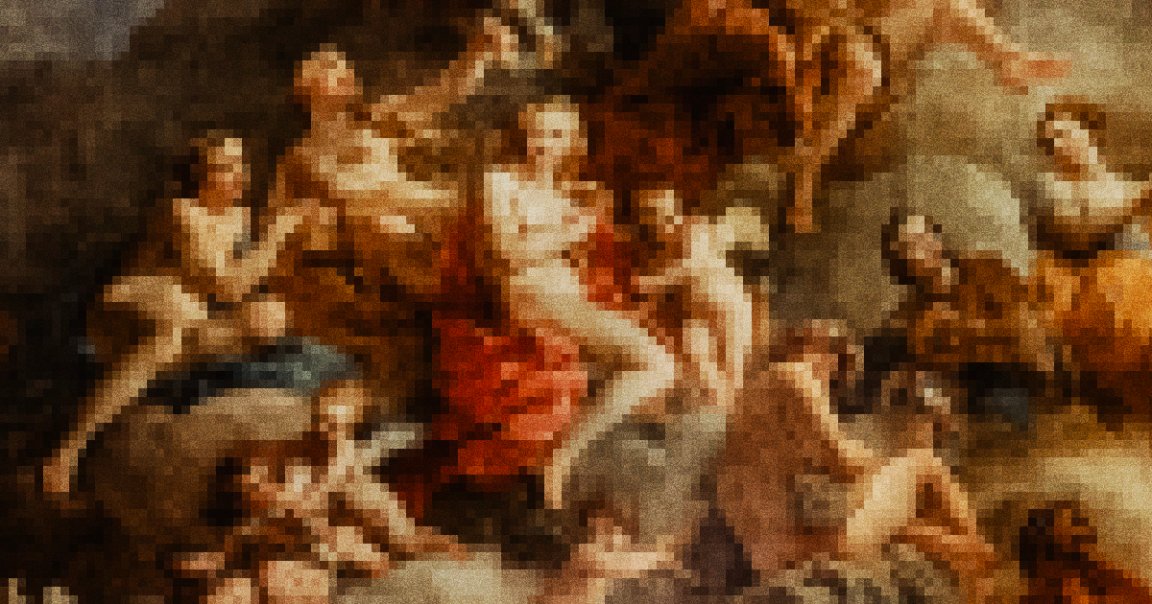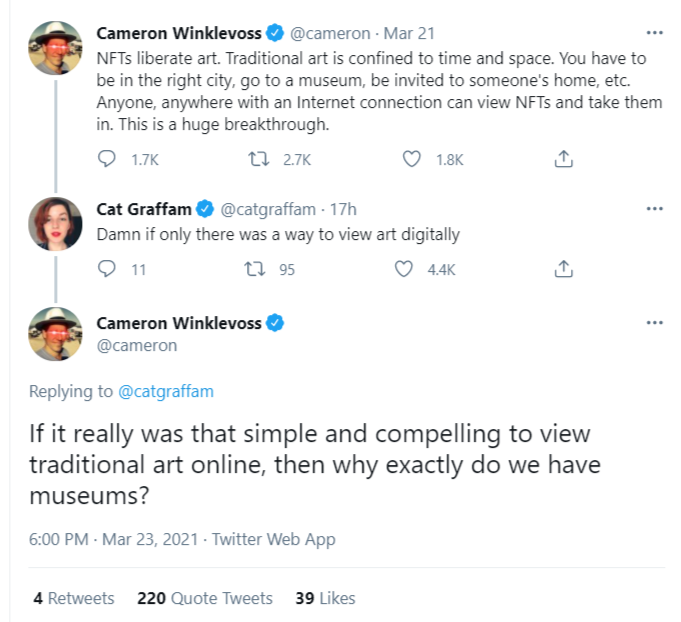
Cameron Winklevoss, the crypto investor and advocate you probably know best as “one of the two guys Armie Hammer played in that Facebook movie,” believes that NFTs are going to change art forever.
“NFTs liberate art,” Winklevoss tweeted on Sunday. “Traditional art is confined to time and space. You have to be in the right city, go to a museum, be invited to someone’s home, etc. Anyone, anywhere with an Internet connection can view NFTs and take them in. This is a huge breakthrough.”
To back up a bit, non-fungible tokens (NFTs) are the latest crypto fad, in which people use the blockchain to claim digital ownership over, well, whatever they feel like. It began with digital art and really made headlines when a piece by the artist “Beeple” sold for $69 million. If you’re asking yourself “Well, what’s the point of all that?” then you’re doing just fine.
Let’s be extremely clear. You can still look at, download, and even print and frame any NFT artwork you want for free — the actual “ownership” that people are buying is essentially just for a URL, and it depends on every involved party continuing to host the image online.
It’s silly to claim that ownership of a JPG that anyone else can copy and paste is the future of art. But here we are, at notorious rich guy Cameron Winklevoss’s assertion that NFTs will somehow “liberate art.”

This line of thinking is as nonsensical as it is exhausting. If the idea is to liberate art from museum halls and private galleries through digitization, well, Google Images is right there, Cameron! But that’s clearly not the issue here — the issue is that you don’t get to invest and make money when you look up a famous work of art and save it as your wallpaper.
And frankly, if NFT advocates would just admit that that’s what this is about, the whole exercise would be so much less excruciating for everyone involved.
More on NFTs: An NFT Painting Just Sold For $69 Million